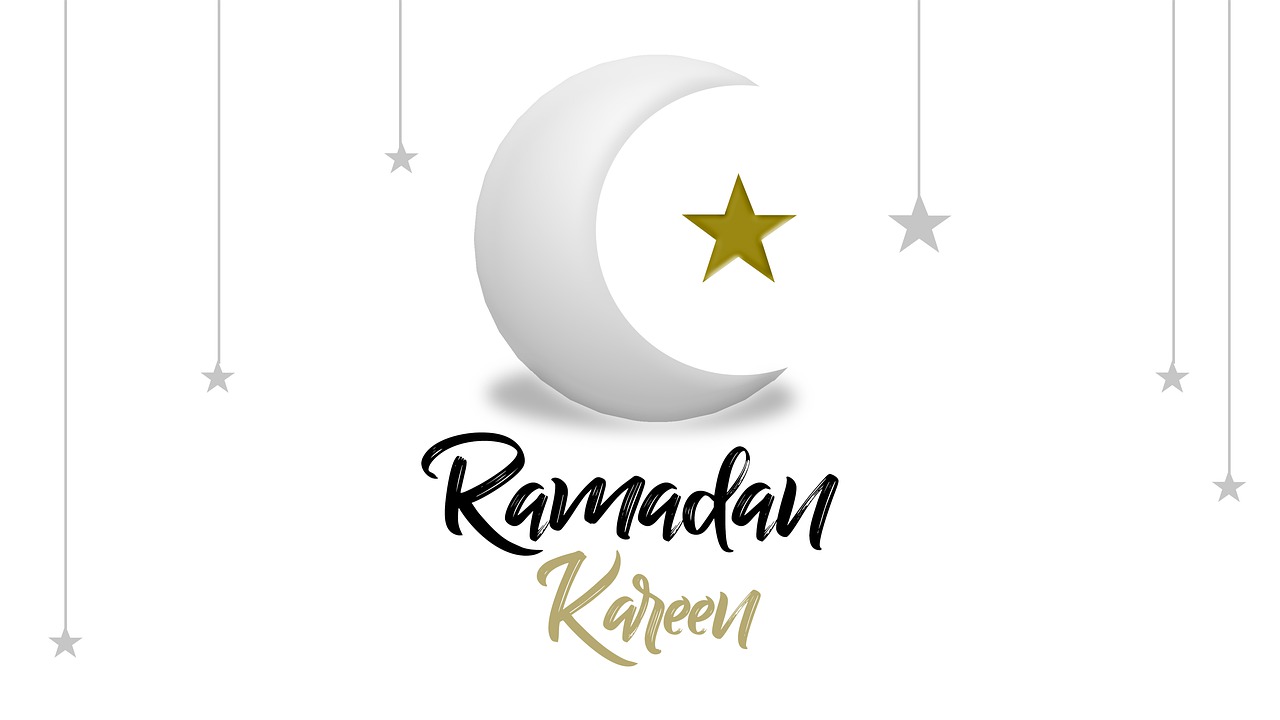Get captivated by these 9 Ramadan rituals that will take your soul on a spiritual journey. This holy month of self-discipline and purification is observed by millions of Muslims worldwide. Embrace the essence of
Islam and discover the local customs that bring you closer to Allah.
Spotting the Crescent Moon
The start of Ramadan is marked by the sighting of the crescent moon. Islamic countries rely on an official religious committee to determine the beginning of Ramadan Kareem. It’s a tradition for people to search
for the new moon, and if found, inform the authorities. As a result, the start date varies from country to country, making it an exciting crossword clue. This can be found in the light of the Qur’an.
“They ask you, [O Muhammad], about the new moons. Say, “They are measurements of time for the people and for Hajj.” (2:189) [1]
Discover the Power of Fasting During Ramadan Kareem
Experience the transformative power of self-control and soul purification during the holy month of Ramadan Kareem. Muslims worldwide fast from dawn to sunset, refraining from food, drink, and sinful thoughts and deeds. It’s a time for deep introspection and reconnecting with Allah and Prophet (PBUH) through prayer and Quran recitation. Each person strives to improve their inner self by avoiding
sinful acts and practicing self-discipline. Don’t miss out on the opportunity to learn valuable lessons from fasting, as Allah said;
“O you who have believed, decreed upon you is fasting as it was decreed upon those before you that you may become righteous.” (2:183) [2]
Taraweeh Prayers
In addition to fasting, Muslims also observe Taraweeh prayers during Ramadan. Taraweeh is a special form of prayer that is performed after the Isha prayer during the month of Ramadan.
The Quran states, “And establish regular prayers at the two ends of the day and at the approaches of the night: For those things that are good remove those that are evil” (11:114).
Indulge in Delicious Suhoor and Iftaar Meals During Ramadan
Elevate your taste buds with the delectable Suhoor and Iftaar meals during the holy month of Ramadan. Savor the pre-dawn meal, Suhoor, before commencing the fast, and then relish the evening meal, Iftaar, at the time of fast opening. These meals are prepared with the utmost care, ensuring they are nutritious enough to meet your body’s needs. Fresh dates are the perfect way to open the fast, and a refreshing glass of juice completes the Iftaar meal, fulfilling your thirst after a day of fasting. Get ready to embark on a culinary journey like no other!
Allah says in the Holy Book, “And eat and drink until the white thread of dawn becomes distinct to you from the black thread [of night]. Then complete the fast until the sunset.” (2:187) [3]
Elevate Your Spirituality: Prayer and Quran Recitation in Ramadan
In Ramadan, Muslims prioritize their spiritual growth by scheduling their daily routine around five prayer times and dedicating time to recite the Quran. By connecting with Allah and learning from the
wisdom of the Quran, Muslims seek to purify their souls and transform their personalities for the better.
Allah has marked the importance of Ramadan and Qur’aan, says; “The month of Ramadhan [is that] in which was revealed the Qur’an, a guidance for the people and clear proofs of guidance and criterion.”
(2:185) [4]
Generosity in Action: Sharing Sehar and Iftar Meals
The spirit of Ramadan extends beyond personal worship and encompasses acts of kindness towards others. Affluent families often arrange Sehar and Iftar meals for the less fortunate, while Iftar parties
bring together loved ones and friends to break the fast. Masajid (mosques) also provide free meals, welcoming people of all backgrounds and faiths without discrimination. Ramadan is also a time for increased charity and giving. The Quran emphasizes the importance of giving to those in need and encourages Muslims to be generous with their wealth.
The Quran states, “Indeed, Zakat is for the poor and the needy, and those employed to collect it, and for bringing hearts together, and for freeing captives, and for those in debt, and for the cause of Allah, and
for the traveler – an obligation imposed by Allah. And Allah is Knowing and Wise” (9:60).
Get ready to experience a night like no other – Laylat-ul-Qadar!
This is the extraordinary night when the holy Quran was first started revealing to Prophet Muhammad (PBUH) by Allah Almighty. The blessings that pour down on this auspicious night are beyond measure,
making it a truly special occasion for all Muslims.
Allah says, “The Night of Decree is better than a thousand months.” (97:03) [5]
Itikaf- A Spiritual Retreat
Itikaf is a spiritual retreat that some Muslims undertake during the last 10 days of Ramadan. It involves spending a period of time in seclusion in a mosque, focusing on prayer and contemplation. During Itikaf,
Muslims are encouraged to read and study the Quran, and to reflect on their spiritual journey. It’s mentioned in the Qur’an that do not have relations with your wives as long as you are staying for worship (Itikaf) in the mosques.
Eid-ul-Fitr – A Festive Celebration of Love and Togetherness
The Qur’aan states, “Allah intends for you ease and does not intend for you hardship and [wants] for you to complete the period and to glorify Allah for that [to] which He has guided you, and perhaps you will be
grateful.” (2:185) [6]
Eid-ul-Fitr is the culmination of a month-long fasting period, Ramadan. On this day, Muslims across the globe dress up in new clothes, exchange gifts, and prepare delicious sweet dishes to indulge in before
offering the Eid prayer. After the prayer, people embrace each other to show love and brotherhood. The festive celebration lasts for three days, and it’s a time to cherish with family, friends, and loved ones.
Every region has its unique customs and rituals, but the essence of Eid remains the same – spreading happiness, love, and harmony. Let’s embrace the spirit of Eid and make this world a better place for all.
References:
[1,2,3,4,5,6] Sahih International




